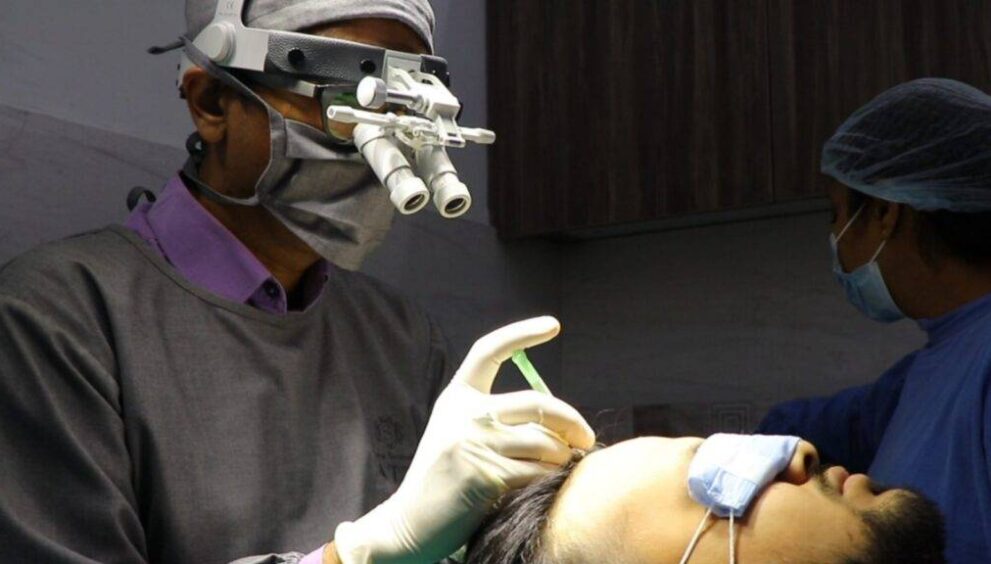The Evolution of Hair Restoration: Exploring Synthetic Hair Transplants

Unveiling the Future of Hair Restoration with Synthetic Hair Transplants
In the realm of hair restoration, the pursuit of a fuller, thicker mane has been a constant quest for those experiencing hair loss. Over the years, various techniques have been developed to address this issue, from traditional hair transplants to innovative solutions such as synthetic hair transplants. In this blog post, we delve into the cutting-edge world of synthetic hair transplants, exploring what they entail, their benefits, and their potential to revolutionize the field of hair restoration.
Understanding Synthetic Hair Transplants
Synthetic hair transplant, also known as artificial hair implants or non-human hair transplants, involve the implantation of artificial fibers or strands into the scalp to simulate the appearance of natural hair. Unlike traditional hair transplants, which typically involve the transfer of hair follicles from one part of the scalp to another, synthetic hair transplants utilize specially designed synthetic fibers that closely resemble natural hair in color, texture, and thickness.
The procedure typically begins with a consultation with a qualified hair restoration specialist who assesses the patient’s hair loss pattern and discusses their goals and expectations. Once the patient is deemed suitable for the procedure, the synthetic hair strands are meticulously implanted into the scalp using advanced techniques to ensure a natural-looking result.
Benefits of Synthetic Hair Transplants
Non-Invasive: Unlike traditional hair transplants, which involve surgery and the extraction of hair follicles, synthetic hair transplants are non-invasive and require minimal downtime. This makes them an attractive option for individuals who are wary of surgical procedures or have medical conditions that may preclude them from undergoing surgery.
Immediate Results: One of the most significant advantages of synthetic hair transplants is the immediate results they offer. Since the artificial fibers are implanted directly into the scalp during the procedure, patients can leave the clinic with a fuller head of hair the same day. This instant gratification is particularly appealing to those seeking a quick fix for their hair loss concerns.
Versatility: Synthetic hair transplants offer a high degree of versatility in terms of styling options. The artificial fibers can be customized to match the patient’s natural hair color, texture, and length, allowing for seamless integration with existing hair. Additionally, synthetic hair is not susceptible to the same factors that can affect natural hair, such as humidity or heat styling, making it a low-maintenance solution for long-term hair restoration.
Cost-Effective: Compared to traditional hair transplants, which can be costly due to the surgical nature of the procedure and the need for multiple sessions, synthetic hair transplants are generally more affordable. This makes them accessible to a wider range of individuals who may be seeking an effective yet budget-friendly solution for their hair loss concerns.
Challenges and Considerations
While synthetic hair transplant offer many benefits, it’s essential to consider some potential challenges associated with the procedure. Synthetic fibers may not feel identical to natural hair, and there is a risk of them becoming dislodged or displaced over time. Additionally, some individuals may experience allergic reactions to the materials used in synthetic hair transplants, although this is relatively rare.
Furthermore, synthetic hair transplants may not be suitable for everyone, particularly those with extensive hair loss or underlying medical conditions that may affect the success of the procedure. As with any cosmetic treatment, it’s crucial to undergo a thorough consultation with a qualified specialist to determine the most appropriate course of action based on individual needs and circumstances.
In Conclusion
Synthetic hair transplants represent a significant advancement in the field of hair restoration, offering a non-invasive, immediate, and cost-effective solution for individuals experiencing hair loss. While they may not be suitable for everyone, they provide a viable alternative to traditional hair transplants and other hair restoration methods. As technology continues to evolve, synthetic hair transplants are poised to become an increasingly popular choice for those seeking to regain confidence and achieve a fuller head of hair.


 English
English 

